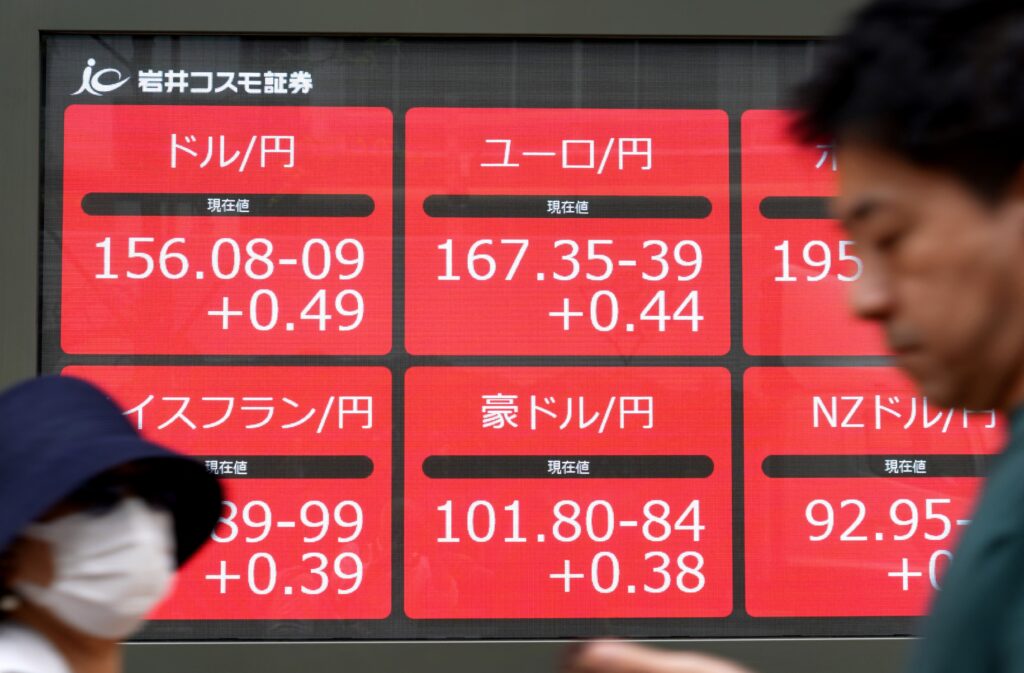
- ARAB NEWS
- 01 Aug 2025

TOKYO: Japan spent 9,788.5 billion yen in foreign exchange market interventions between April 26 and Wednesday, a record amount on a monthly report basis, the Finance Ministry said Friday.
The dollar suddenly lost ground sharply against the yen on April 29 and May 2, during the country’s Golden Week holiday period, when Japanese authorities are believed to have conducted stealth yen-buying, dollar-selling interventions.
Japanese authorities last stepped into foreign exchange markets in autumn 2022, when they spent 9,188.1 billion yen in three rounds of yen-buying, dollar-selling interventions from September to October.
The yen remains weak against the dollar after the latest interventions. “We’ll respond appropriately to excessive movements. This basic idea will not change in any way,” Finance Minister Shunichi Suzuki told a news conference Friday.
On April 29, when the Tokyo market was closed for a national holiday, the dollar plunged below 155 yen after surging above 160 yen in overseas trading.
Speculation arose at the time that intermittent yen-buying, dollar-selling interventions worth approximately 5 trillion yen were conducted amid thin trading to prevent sharp depreciation of the yen.
In the early morning of May 2, the dollar sagged below 154 yen from around 157.5 yen, prompting speculation of an additional intervention worth about 3 trillion yen.
KANDA Masato, vice finance minister for international affairs, who oversees currency interventions, has warned of possible interventions while refraining from commenting on whether such actions were actually taken.
Last week, U.S. Treasury Secretary Janet Yellen said that currency interventions should be conducted only rarely.
JIJI Press